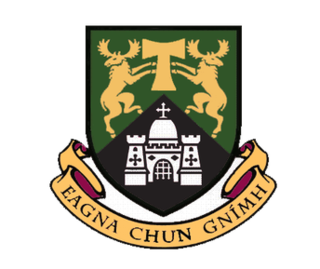
The University of Limerick (UL) is a public research university institution in Limerick, Ireland. Founded in 1972 as the National Institute for Higher Education, Limerick, it became a university in September 1989 in accordance with the University of Limerick Act 1989. It was the first university established since Irish independence in 1922, followed by the establishment of Dublin City University later the same day.
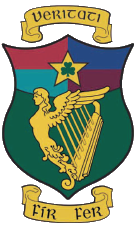
The National University of Ireland (NUI) is a federal university system of constituent universities and recognised colleges set up under the Irish Universities Act 1908, and significantly amended by the Universities Act, 1997.

Dublin City University is a university based on the Northside of Dublin, Ireland. Created as the National Institute for Higher Education, Dublin in 1975, it enrolled its first students in 1980, and was elevated to university status in September 1989 by statute.
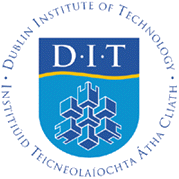
Dublin Institute of Technology was a major third-level institution in Dublin, Ireland. On 1 January 2019 DIT was dissolved and its functions were transferred to the Technological University Dublin, as TU Dublin City Campus. The institution began with the establishment of the first technical education institution in Ireland, in 1887, and progressed through various legal and governance models, culminating in autonomy under a statute of 1992.

Third-level education in the Republic of Ireland includes all education after second-level, encompassing higher education in universities and colleges and further education on Post Leaving Certificate (PLC) and other courses. The degree-awarding institutions which can grant awards at all academic levels are the University of Dublin, National University of Ireland, University of Limerick, Dublin City University, Technological University Dublin, the Royal College of Surgeons in Ireland, Munster Technological University, Technological University of the Shannon: Midlands Midwest, Atlantic Technological University and South East Technological University, as well as St Patrick's College, Maynooth. Quality and Qualifications Ireland, a State agency, can grant awards in other institutions directly, or delegate the authority to do so. The King's Inns of Dublin has a limited role in education specialising in the preparation of candidates for the degree of barrister-at-law to practice as barristers. Medical schools in Ireland also have particular regulation. There were seven establishments of higher education within Ireland ranked among the top 500 universities worldwide by the Times Higher Education Supplement in 2023.
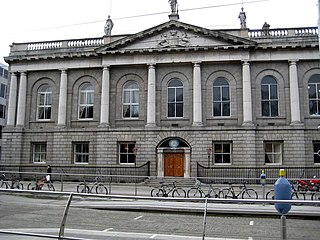
The Royal College of Surgeons in Ireland (RCSI) is a not-for-profit medical professional and educational institution, which is also known as RCSI University of Medicine and Health Sciences. It was established in 1784 as the national body for the surgical branch of medicine in Ireland, with a role in supervision of training, and as of 2021 provides a broad range of medical education in multiple countries.

The UCD School of Medicine at University College Dublin, Ireland, was founded in 1854. At undergraduate level, the school offers programmes in Medicine MB BCh BAO, BSc Biomedical Health and Life Sciences, and the BSc Radiography. At graduate level, the school UCD offers over 40 programmes for health care professionals.
Hugh Redmond Brady is an Irish academic, the 17th President of Imperial College London, and a professor of medicine. He was the 13th President and Vice-Chancellor of the University of Bristol. He is also President Emeritus of University College, Dublin (UCD), having served as UCD's eighth President from 2004 to 2013.
Dublin Molecular Medicine Centre (DMMC) was a charity set up in 2002, to create critical mass in molecular medicine research in Dublin, Ireland. Funding was provided by the Higher Education Authority.

Beaumont Hospital is a large teaching hospital located in Beaumont, Dublin, Ireland. It is managed by RCSI Hospitals - one of the hospital groups established by the Health Service Executive. Its academic partner is the Royal College of Surgeons in Ireland.

The Royal College of Surgeons In Ireland and University College Dublin Malaysia Campus (RUMC) is a private medical university in George Town, Penang, Malaysia. It was established in 1996 as Penang Medical College, as well as being an international branch campus of the Royal College of Surgeons in Ireland and University College Dublin.
Orla Hardiman is an Irish consultant neurologist. She was appointed Professor of Neurology by Trinity College University of Dublin in 2014, where she heads the Academic Unit of Neurology, housed in Trinity Biomedical Sciences Institute. She is a HRB Clinician Scientist and Consultant Neurologist at the National Neuroscience Center of Ireland at Beaumont Hospital, Dublin. She leads a team of thirty researchers focusing on clinical and translational aspects of amyotrophic lateral sclerosis and related neurodegenerations. Hardiman has become a prominent advocate for neurological patients in Ireland, and for patients within the Irish health system generally. She is co-founder of the Neurological Alliance of Ireland and Doctors Alliance for Better Public Healthcare. In the past, she established the bi-annual Diaspora Meeting, a forum for Irish neurologists based overseas to present and discuss their research findings with neurologists working in Ireland.

The Royal College of Surgeons in Ireland - Bahrain formerly known as the Royal College of Surgeons in Ireland - Medical University of Bahrain is a constituent university of the Royal College of Surgeons in Ireland, which was established in 1784. Like its Dublin counterpart situated on St. Stephen's Green, RCSI Bahrain is a not-for-profit health sciences institution focused on education and research. The university incorporates schools of medicine, nursing, and postgraduate studies and research, and thus provides both undergraduate and postgraduate levels of education and research activities in a number of healthcare fields.

The Ashbourne Cup is an Irish camogie tournament played each year to determine the national champion university or third level college. The Ashbourne Cup is the highest division in inter-collegiate camogie. The competition features many of the current stars of the game and is sometimes known as the 'Olympics of Camogie' because of the disproportionate number of All Star and All-Ireland elite level players who participate each year Since 1972 it has been administered by the Higher EducationArchived 31 May 2011 at the Wayback Machine committee of the Camogie Association.

The Perdana University – Royal College of Surgeons in Ireland School of Medicine is one of the six schools of the Perdana University located in Damansara Heights, Kuala Lumpur. It was established in 2011.
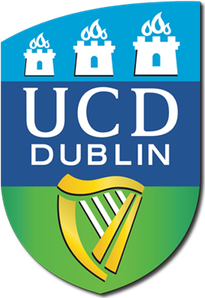
University College Dublin is a public research university in Dublin, Ireland, and a member institution of the National University of Ireland. With 38,417 students, it is Ireland's largest university, and amongst the most prestigious universities in the country. Five Nobel Laureates are among UCD's alumni and current and former staff. Additionally, four Taoisigh and three Irish Presidents have graduated from UCD, along with one President of India.
Medical education in Ireland is the education of medical students and qualified medical doctors across the island of Ireland.

Technological University Dublin or TU Dublin is Ireland's first technological university, established on 1 January 2019, and with a history stretching back to 1887 through the amalgamated Dublin Institute of Technology which progressed from the first technical education institution in Ireland, the City of Dublin Technical Schools. It is the second-largest third-level institution in Ireland, with a student population of 28,500.
Peter Vincent Delaney MB, BSc, MCh, FRCSI was an Irish colorectal surgeon. He founded the Sylvester O'Halloran Perioperative Symposium and Meeting, a fixture of the Irish surgical calendar, and received the President's Medal from the University of Limerick.
St. John of God Hospital is an independent (private) psychiatric teaching hospital located in Stillorgan, Dublin, Ireland. The hospital is managed by the St. John of God Hospitaller Service Group, which is part of the international St. John of God Order that has more than 300 care centres in more than 50 countries. Hospitality, compassion, excellence, justice, and respect are the values of every centre of the St. John of God Order.














